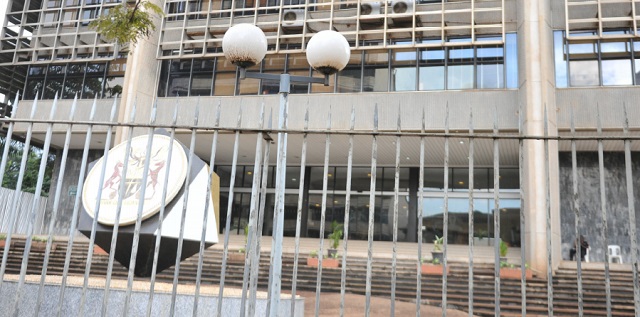
Rise in imports, commodity prices, COVID-19 variant could impact recovery
Kampala, Uganda | JULIUS BUSINGE | Uganda’s economy underperformed in 2020 as coronavirus pandemic lockdown took toll on economic activities.
The economy is projected to grow by 3.5-3.8% in the FY2021/22 and 5.5-6.0% in FY2022/23, before increasing to 6.5-7.5% in the medium-term (2 to 3-years ahead), according to the Bank of Uganda, driven by the ongoing vaccinations and easing of restrictions.
However, the economy still faces numerous challenges ahead. Import growth is expected to outpace exports due to recovery in import-intensive household consumption and private investment. As a result, the contribution of net exports to GDP growth will be negative for an extended period.
Moreover, although the fiscal impulse remains positive in FY2021/22, its contribution to GDP growth is lower than last financial year owing to the limited fiscal space to support further increases in government expenditure.
Also, the recent surge in international commodity prices, especially oil prices, and the recent exchange rate depreciation could spark inflation. The situation could be worsened by the likely increase in global inflation that could prompt a faster than anticipated monetary normalisation in advanced economies, weakening the local currency, and further fuelling domestic inflation.
BoU says, the COVID-19 variant, too, still remains a big concern. “Overall, the balance of risks for growth is still tilted to the downside. The major source of concern is that more aggressive Covid-19 variants could emerge before widespread vaccination is reached,” BoU says in its state of economy report for December 2021.
“If the Omicron variant becomes more infectious than other strains, it will increase the likelihood of Covid-19 outbreaks triggering more lockdowns and drag down growth in 2022.
However, for now, the BoU says the economic growth outlook is favourable, as restrictions will continue to be eased and huge pent-up demand from the past two years is released.
This will also be boosted by a rebound of economic activity that is expected to be sustained by an acceleration in private consumption, strong growth in external demand, a gradual return of tourism, and foreign and domestic private investment in the oil sector.
Paul Lakuma, an economist and research fellow at the Makerere University based Economic Policy Research Centre told The Independent on Jan.13 that ‘there’s a lot of optimism’ in 2022.
He said, with the evidence that the third wave of Omicron covid variant is mild, the economy should continue to reopen to stir business activities but with caution.
“We should not let our guards down…let’s follow the standard operating procedures as we learn to live with the virus,” he said.
The re-opening of schools, which had been closed for nearly two years, has also raised hope for growth of the economy.
Thadeus Musoke, the acting chairman of Kampala City Traders Association (KACITA) said schools have been the biggest market for their products and services such as scholastic materials, uniforms, food and printing, among others.
“It is a big opportunity for our members to make some money as the economy gets better,” he told The Independent.
Private sector records increase in orders
This development comes as the latest Stanbic Bank Uganda Purchase Managers’ Index indicated that the prospect of further improvements in new orders for private sector goods and services supported confidence among 83% of the respondents who revealed that business activity would expand over the course of 2022.
The index for the month showed further increases in output and new orders in the country’s private sector as demand continued to improve across many sectors of the economy. These are agriculture, services and wholesale and retail sectors. However, private sector activity declined in the construction and industrial sectors.
Francis Kisirinya, the deputy executive director at the Private Sector Foundation Uganda, told The Independent on Jan.13 that with the re-opening of the economy including the education sector, their members would start to invest in new stock and subsequently in plants and equipment to cope with the would-be rising demand for goods and services.
He, however, said inflation remains one of the concerns for the private sector especially with the surge in prices for petroleum products. “Arise in petroleum prices might lead to increase in the cost of doing business and higher prices,” he said.
Data from the Uganda Bureau of Statistics indicates that annual inflation rate rose further from 2.6% in November to 2.9% in December 2021.
The December figure was the highest rate since October of 2020, underpinned by prices of food and non-alcoholic beverages, health, furnishings and transport.
However, BoU kept its policy interest rate – central bank rate – unchanged at 6.5%, the lowest ever in the country’s history since 2011, as a measure to stimulate economic activities and salvage the economy.
The low central bank rate for nearly a year had seen the private sector credit increase in the quarter ending October 2021, signalling an accommodative monetary policy and reduction in the costs of borrowing.
The post Uganda’s 2022 economic outlook appeared first on The Independent Uganda:.
from The Independent Uganda: https://ift.tt/3FE0a7S
0 Comments